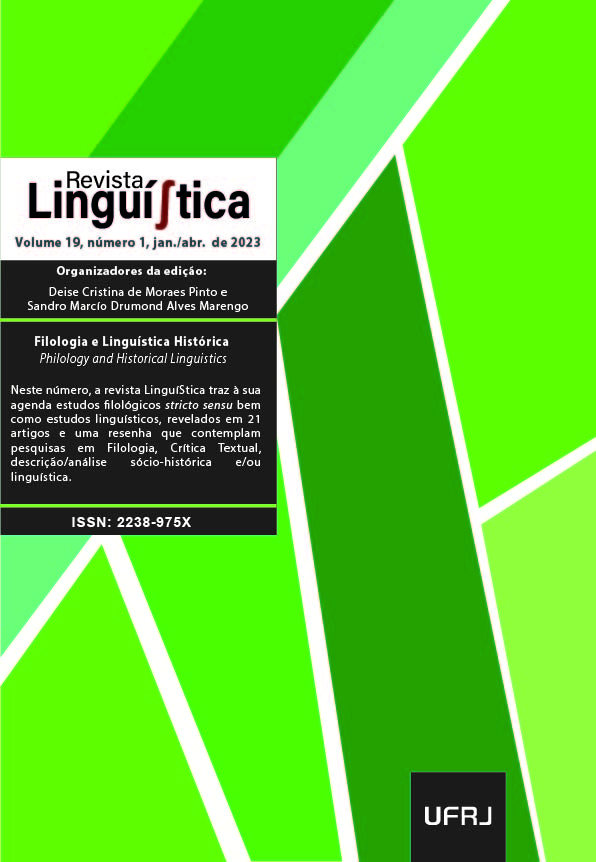Sociocognitive Theory of Terminology: diachronic applications
DOI:
https://doi.org/10.31513/linguistica.2023.v19n1a58258Keywords:
socio-historical terminology, Sociocognitive Theory of Terminology, corpus delicti. Copula, Rape.Abstract
Terminological research has made considerable progress in almost all areas of language for specific purposes, such as Medicine or Law. However, studies with a socio-historical perspective have been relegated to the background. In Brazil, terminological research with a diachronic approach is scarce, which is why we developed our research for contributing to this area of study. This article aims to describe and analyze a medical-legal term found in a corpus consisting of 45 corpus delicti, extracted from rape criminal cases recorded in Sergipe from 1854 to 1900. The term copula was chosen due to its significant frequency and because it is a representative term for the sexual act. Our theoretical foundation is based on the principles of Diachronic Socioterminology and the Sociocognitive Theory of Terminology. In the methodological procedures, first of all, we performed manuscript editions, then we used Corpus Linguistics by employing the software AntConc and TermoStat for term extraction and identification. After this process, we chose the term to be analyzed and applied it in the terminology sheet model, along the lines of Sociocognitive Terminology We described and analyzed the chosen term, and a result, we concluded that this approach allowed us to understand the (re)constructed meanings through real usage of the term, examine its socio-historical movements in its specific contexts, as well as identify its users, enunciators, communicative and discursive situations.
Downloads
Published
Issue
Section
License
Copyright (c) 2023 Revista Linguí∫tica

This work is licensed under a Creative Commons Attribution-NonCommercial 4.0 International License.
Authors who publish in the Revista Linguí∫tica agree with the following terms:
The authors maintain their rights, ceding to the journal the right to first publication of the article, simultaneously submitted to a Creative Commons license permitting the sharing with third-parties of published content as long as it mentions the author and its first publication in the Revista Linguí∫tica.
Authors may enter into additional agreements for the non-exclusive distribution of their published work (for example, posting in online institutional or non-profit repositories, or book chapters) so long as they acknowledge its initial publication in the Revista Linguí∫tica.

The journal Revista Linguí∫tica is published by the Post-Graduate program in Linguistics of UFRJ and employs a Creative Commons - Attribution-NonCommercial 4.0 International (CC-BY-NC).









